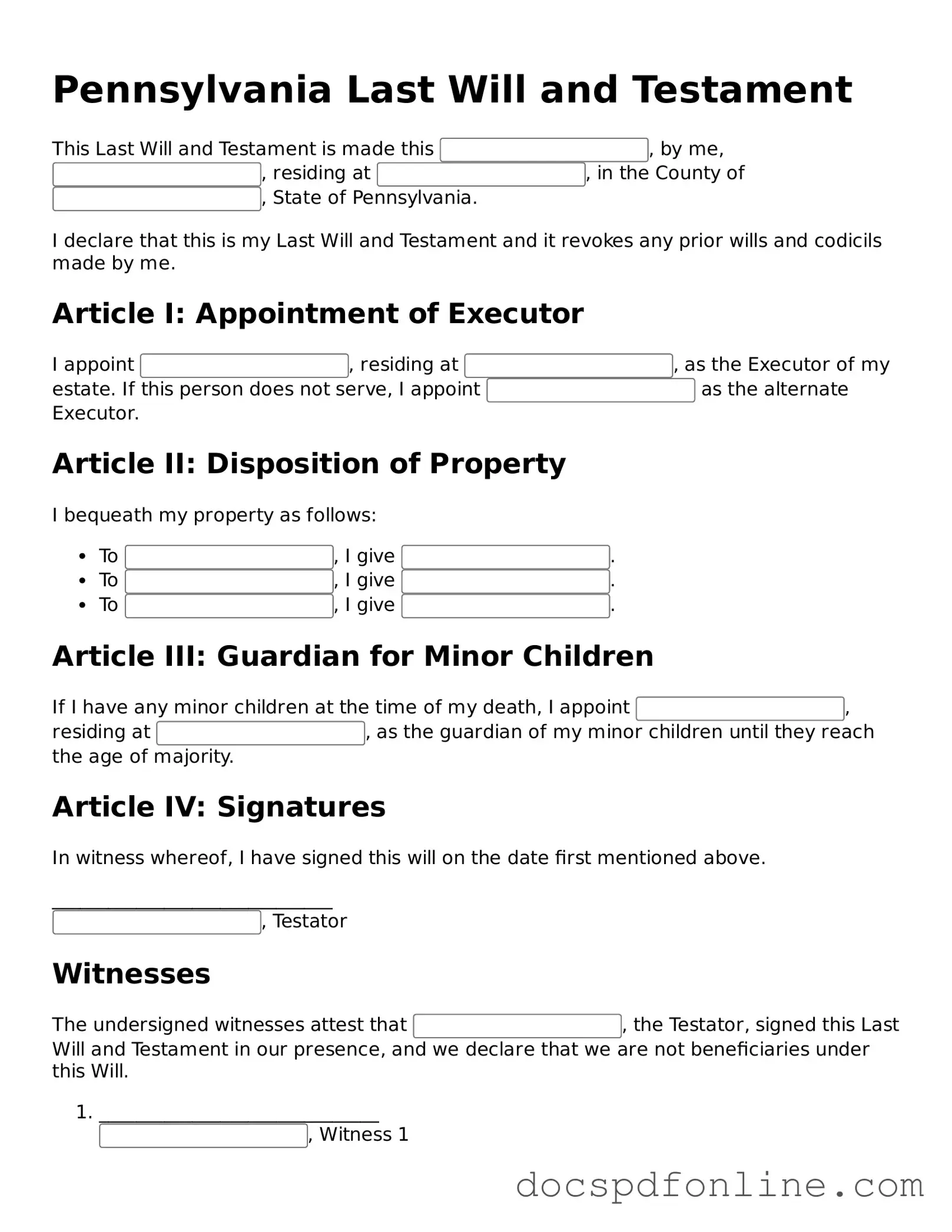Legal Last Will and Testament Template for Pennsylvania
The Last Will and Testament form in Pennsylvania is a legal document that outlines how a person's assets and affairs should be handled after their death. This essential tool ensures that your wishes are respected and can provide clarity for your loved ones during a difficult time. Understanding its components and requirements is crucial for anyone looking to create a will in the state.
Launch Editor Now

Legal Last Will and Testament Template for Pennsylvania
Launch Editor Now
Save time — finish this form fast
Finish Last Will and Testament online — edit, save, download made easy.
Launch Editor Now
or
↓ PDF File
